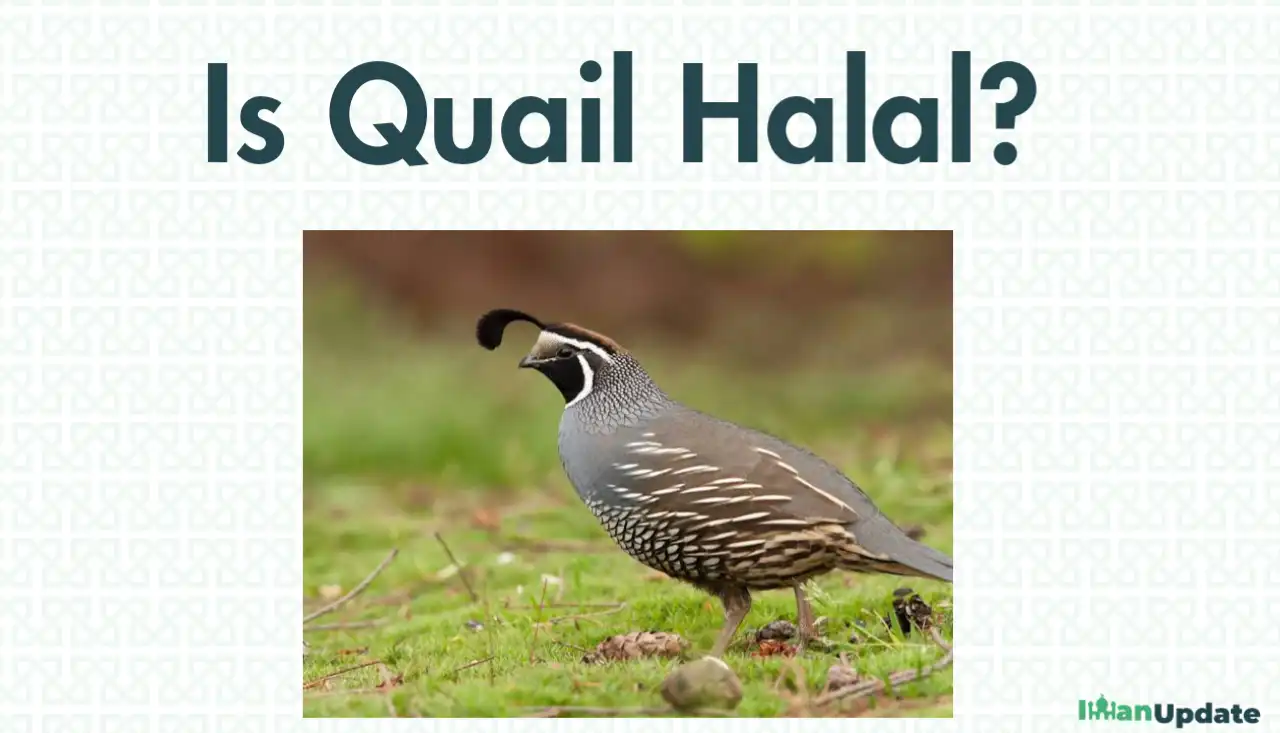Is Quail Halal? A Comprehensive Guide

As Muslims, ensuring that our food is halal is a critical part of maintaining a pure and wholesome lifestyle.
From choosing the right types of meat to ensuring that they are prepared in accordance with Islamic guidelines, it’s important to remain vigilant in our dietary choices.
If you’re looking to add something new and nutritious to your meals, quail may be a great option to consider. But before you cook this delicate bird, you might be wondering, is quail halal?
In this post, we will explore the Islamic guidelines that determine whether quail is halal and whether you can include it in your meals with full confidence in its permissibility.
Is Quail Halal?
Yes, quail is halal. According to Islamic teachings, quail is not classified as a bird of prey, which is key in determining its permissibility. Birds that hunt and capture their prey using talons, such as eagles, hawks, and falcons, are considered haram (forbidden) in Islam. Since quail does not have talons or engage in predatory behavior, it is permissible to eat as long as it is slaughtered in accordance with Islamic guidelines.
This ruling is derived from the general principle in Islam that all birds are considered halal unless there is clear evidence to suggest otherwise. Therefore, when it comes to quail, there is no prohibition mentioned in the Quran or hadith that would make it haram.
READ ALSO: Is Emu Halal? A Comprehensive Guide
Why Is Quail Halal in Islam?
It is permissible to eat quail because there is no evidence in Islamic teachings that explicitly forbids it. The basic principle in Islam is that everything is halal unless it is specifically declared haram. Allah says in the Quran (interpretation of the meaning):
“Say (O Muhammad, SAW): I find not in that which has been revealed to me anything forbidden to be eaten by one who wishes to eat it, unless it be Maytah (a dead animal) or blood poured forth (by slaughtering or the like), or the flesh of swine (pork); for that surely, is impure or impious (unlawful) meat (of an animal) which is slaughtered as a sacrifice for others than Allaah (or has been slaughtered for idols, or on which Allaah’s Name has not been mentioned while slaughtering). But whosoever is forced by necessity without wilful disobedience, nor transgressing due limits; (for him) certainly, your Lord is Oft‑Forgiving, Most Merciful”.
(Surah al-An’aam, verse 145)
This verse clearly outlines the specific types of food that are prohibited for Muslims, none of which include quail or similar birds. As long as quail is slaughtered in the proper Islamic manner, invoking the name of Allah, it is halal for consumption.
What Makes Some Birds Haram?
Islamic dietary laws provide specific guidance on what types of birds are haram. The Messenger of Allah (peace and blessings be upon him) prohibited the consumption of wild animals with fangs and birds that hunt using talons. A hadith narrated by Ibn ‘Abbaas (may Allah be pleased with him) states:
“The Messenger of Allah (peace and blessings of Allah be upon him) forbade every wild animal with fangs and every bird with talons” (Sahih Muslim, 1934).
Based on this hadith, scholars have ruled that birds of prey—those that use talons to catch and eat their food—are forbidden. Examples include eagles, hawks, and owls.
Additionally, birds that feed primarily on carrion, such as vultures, are also haram. These birds are considered impure due to their diet and behavior.
The Ruling on Quail
Quail, on the other hand, does not fit into any of the haram categories. It is a small, non-predatory bird that primarily feeds on seeds and small insects.
Quail does not have talons, nor does it eat carrion, making it permissible for Muslims to eat. This ruling is consistent with the general Islamic principle that all birds are halal unless otherwise specified.
Additionally, Shaykh Ibn ‘Uthaymeen (may Allah have mercy on him) explained that not all birds with talon-like features are haram.
He clarified that the spur seen on the leg of a rooster, for example, is not used to catch prey, and thus does not make the bird haram. Quail is similar in this regard and is permissible to eat.
What About Other Birds?
There are certain exceptions when it comes to birds that are off-putting or repulsive, such as bats. Some scholars differ in their opinions on what constitutes a “repulsive” bird, but quail is generally not included in this category.
Other birds that are forbidden include those that it is haram to kill, like hoopoes. This is based on a hadith where the Prophet (peace and blessings of Allah be upon him) forbade killing specific animals, including ants, bees, hoopoes, and sparrow-hawks (Abu Dawood, 5267; Ibn Majaah, 3224).
Ultimately, birds that do not fall into these categories are considered halal. Since quail does not possess any features that would make it haram, it remains a permissible bird to enjoy.
Are Quail Eggs Halal?
Yes, quail eggs are also halal. There is no evidence in Islamic teachings that suggests quail eggs are haram. Following the same principle that we apply to the meat of quail, the eggs are also considered halal unless there is clear evidence to prove otherwise. Since no such evidence exists, quail eggs are permissible to consume.
Quail eggs can be a nutritious addition to your diet, providing a rich source of vitamins and minerals. Like the bird itself, they can be enjoyed as part of a halal meal with full confidence in their permissibility.
Conclusion
In conclusion, quail is a halal bird that can be safely consumed by Muslims, provided it is slaughtered in accordance with Islamic guidelines.
It does not fall into the category of birds of prey or carrion eaters, making it permissible to eat. Quail eggs are also halal, offering a nutritious and versatile option for your meals.
As Muslims, it’s essential to ensure that all aspects of our diet comply with Islamic principles. Whether you’re trying quail for the first time or are a regular consumer, you can enjoy this delicious bird knowing it aligns with your dietary beliefs.






